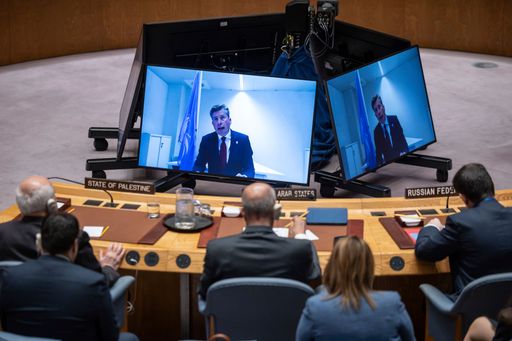The United Nations Secretariat is preparing to slash its $3.7 billion budget by 20 percent and cut around 6,900 jobs, according to an internal memo seen by Reuters news agency.
The directive, which asks staff to outline cuts by 13 June, comes amid a financial crisis triggered in part by the United States, which provides nearly a quarter of the UN’s funding.
In addition to sweeping foreign aid cuts under President Donald Trump, which have severely impacted UN humanitarian agencies, the US owes nearly $1.5 billion in arrears and current-year contributions.
The author of the memo, UN Controller Chandramouli Ramanathan, did not directly reference the US shortfall, instead framing the cuts as part of a broader review launched in March, known as "UN80".
"It is an ambitious effort to ensure that the United Nations is fit for purpose to support 21st-century multilateralism, reduce human suffering and build better lives and futures for all," Ramanathan wrote.
"I count on your cooperation for this collective effort whose aggressive timelines are recognised."
The proposed cuts would take effect from 1 January, at the start of the next budget cycle.

'Times of peril'
In recent briefings to UN diplomats, Secretary-General Antonio Guterres said he was considering a sweeping overhaul that would merge major departments, shift resources globally, and cut overlapping operations.
The UN may consolidate agencies, relocate staff to more affordable cities, and reduce bureaucracy.
"These are times of peril, but they are also times of profound opportunity and obligation," Guterres said earlier this month.
"Make no mistake: uncomfortable and difficult decisions lie ahead. It may be easier—and even tempting—to ignore them or kick the can down the road. But that road is a dead end."
In April, Tom Fletcher, head of the United Nations Office for the Coordination of Humanitarian Affairs, informed staff that US budget cuts would force the agency to trim 20 percent of its workforce to address a $58 million shortfall.
The US failure to pay its assessments has created a liquidity crisis for the UN, further worsened by China's repeated late payments. Together, both countries account for over 40 percent of the UN's core funding.
The Trump administration has also withdrawn hundreds of millions of dollars in discretionary funds, forcing the abrupt suspension of numerous humanitarian programmes. UN officials warn these cutbacks will cost lives.
The proposed US budget for the coming year, pending approval by Congress, eliminates or severely reduces funding for several UN operations, including peacekeeping.



















